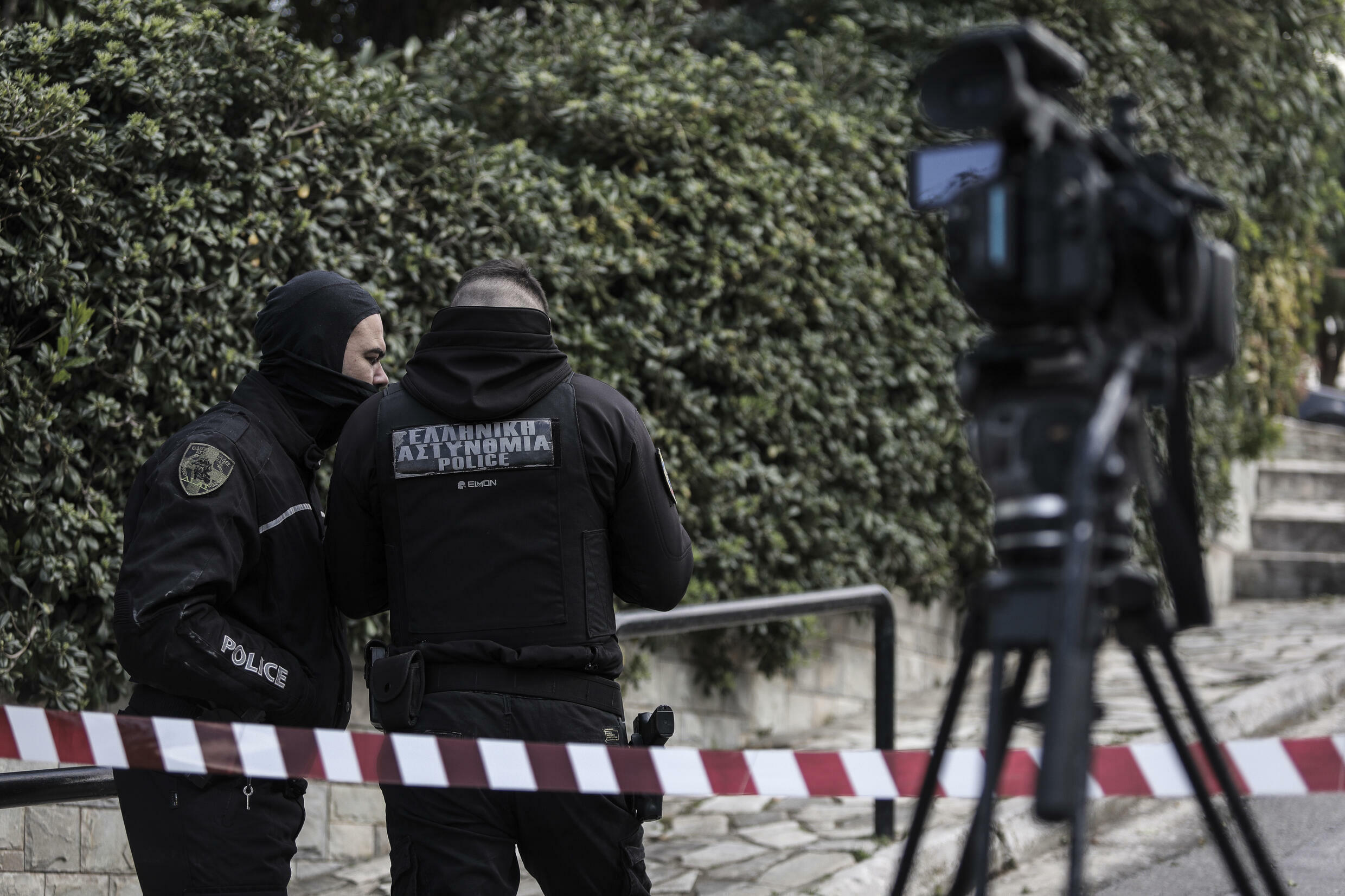Athens (AFP) – A reporter's murder, the prime minister publicly scolding a foreign journalist, and alleged state surveillance. It's been a bad year for media rights in Greece.
The southern European country fell five spots in the 2021 World Press Freedom Index compiled by media watchdog Reporters Without Borders (RSF), and now ranks 70th out of 180 countries, behind Poland and Mongolia.
George Pleios, head of media studies at the National University of Athens, says the deterioration over the past year has been alarming.
"Freedom of the press has become a concern," he told AFP.
Pleios said a raft of press freedom violations in recent years have included journalists being detained or intimidated, and police beating photographers during protests.
But in April, a prominent crime reporter, 52-year-old Giorgos Karaivaz, was gunned down outside his home in Athens. The government ordered an investigation, but no arrests have been made.

Over the past year, the government has ignored requests for information on key stories and pressured journalists over unfavourable reports, while parliament in November passed a new law to punish misinformation with up to five years in jail.
People can now go to prison over alleged fake news "capable of causing concern or fear to the public", in a move Athens newspaper journalists' union Esiea has said is too vague and risks restricting free speech.
Journalists say that, throughout 2021, police and government ministries have routinely ignored their emails seeking answers on the coronavirus pandemic, police abuses and the migration crisis.
'Self-censorship'
Prime Minister Kyriakos Mitsotakis in November became embroiled in a public spat with a Dutch journalist who accused him of "lying" after Athens denied carrying out illegal pushbacks of migrants at sea.

"You will not come into this building and insult me... or the Greek people with accusations and expressions that are not supported by material facts," he said during a news conference with visiting Dutch Prime Minister Mark Rutte.
The journalist, Ingeborg Beugel, later said she had received threats, and temporarily left the country.
On November 13, leftist daily Efsyn published what it said were internal intelligence memos gathering information on anti-vaxxers and activists helping migrants -- but also on a journalist later hired by AFP.
In response to AFP letters, Minister of State George Gerapetritis insisted "there is no surveillance of journalists in Greece".
"Greece fully adheres to the values of democratic society and rule of law, especially pluralism and freedom of the press," he said
He later added that media independence was "sacrosanct".
"Whilst we may not always agree with what the media writes, we will defend... the right of a free press to report unencumbered by and independent of outside interference," he said.
But Greece has not opened an investigation following the alleged Efsyn leaks.
The Efsyn reporter who broke the story, Dimitris Terzis, accused the government and supporting media of "trying to bury the case".

In February and in December last year, journalists received complaint letters from the government after reporting on two instances where Mitsotakis had apparently broken lockdown rules.
Fabien Perrier, a correspondent for French-language media in Greece, says his editors received a letter from the culture ministry in May over a piece criticising a new concrete walkway at the Acropolis.
He said journalists in Greece were under pressure to "practice self-censorship".
Two journalists working with Greek media resigned last year, accusing the government of attempted censorship, allegations it denied.
'Cloud of fear'
Athens University media professor Lambrini Papadopoulou says Greece has a long history of collusion between Greek media, and the political and financial elites.

"Problematic relations between media and power are nothing new," she said.
"There is little room for critical and independent journalism in Greece."
George Tzogopoulos, a research fellow at the Hellenic Foundation for European and Foreign Policy think tank, says the coverage of the pandemic in some Greek media consists of simply churning out government announcements.
Dozens of outlets closed during the 2010-2018 Greek debt crisis, leaving the survivors desperate for any form of backing.
Early during the pandemic in 2020, the government introduced a scheme to support media with funds as part of a stay-at-home campaign.
But according to opposition parties, the money disproportionately benefitted government-friendly media. A parliamentary inquest into the issue is ongoing.
All in all, RSF says authorities have taken insufficient measures to protect journalists.
The 2010 murder of another journalist, 37-year-old Sokratis Giolias, also remains unresolved.
Pleios, the academic, says such failings leave journalists "under a cloud of fear."
© 2021 AFP
"freedom" - Google News
December 19, 2021 at 02:40PM
https://ift.tt/3J1mU4M
Greece journalists denounce press freedom backslide - FRANCE 24
"freedom" - Google News
https://ift.tt/2VUAlgg
https://ift.tt/2VYSiKW
Bagikan Berita Ini














0 Response to "Greece journalists denounce press freedom backslide - FRANCE 24"
Post a Comment